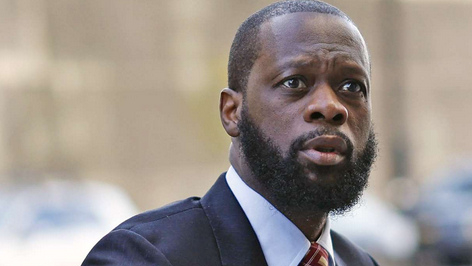From Fugee to Federal Defendant: What Pras Michel’s 14-Year Sentence Says About Money, Politics, and Influence
Pras Michel once stood at the top of the music world as a founding member of the Fugees. Today, he stands at the center of one of the most dramatic political finance scandals in recent US history. The rapper has been sentenced to 14 years in federal prison for funneling millions in foreign money into Barack Obama’s 2012 re-election campaign and working as an unregistered agent for a foreign financier.
It’s the kind of story that pulls together celebrity, political power, money, and the darker corners where influence and legality collide. And for business leaders, donors, executives, and entrepreneurs, the case is more than celebrity drama — it’s a study in the risks of political involvement gone wrong.
When Fame and Money Mix: The Scandal Unpacked
Pras didn’t just donate to a political campaign. Federal prosecutors found that he orchestrated a complex campaign finance scheme involving Jho Low the Malaysian billionaire linked to the massive 1MDB corruption scandal.
Low allegedly supplied Michel with more than $100 million, and prosecutors say some of that cash was quietly routed through straw donors in the US to make it appear legitimate. The reality: foreign money was entering a US election something that is strictly and explicitly illegal.
Foreign nationals cannot contribute to American political campaigns under any circumstances. Michel didn’t just break that rule he worked to conceal it. And once the investigation began, prosecutors say he doubled down, obstructing justice and attempting to influence witnesses.
Why It’s Illegal — and Why It Matters
US campaign finance law has one goal at its core: to ensure American elections are not shaped by foreign interests. Pras Michel’s actions undermined that foundation.
The legal system came down hard because the stakes were high. When foreign money filters into elections, it isn’t just about the cash — it’s about access. Money buys influence, meetings, visibility, and potentially policy. In other words, the law exists not to punish generosity but to protect democratic legitimacy.
Michel also failed to register as a foreign agent while allegedly lobbying US officials on behalf of Low. That’s another serious violation. When individuals act covertly on behalf of another country to influence American political processes, the justice system tends to take notice — and act decisively.
The 14-Year Sentence: Severe or Justified?
Prosecutors initially asked for a life sentence. The judge settled on 14 years still an extraordinary penalty by campaign finance standards.
Some argue it’s excessive. Michel’s legal team has pointed out that drug kingpins and violent offenders sometimes receive similar terms. Others believe the sentence sends a message at a crucial moment: if even a high-profile artist with millions of dollars and political connections can’t escape accountability, neither can anyone else. What’s certain is that Michel’s journey from hip-hop star to convicted political middleman is a jarring reminder that power without transparency quickly becomes perilous.
The Business Lesson: Political Influence Is Not a Game
Executives often assume political giving is straightforward write a check, support a candidate, move on. The Michel case shows how simple that assumption is.
Political donations carry layers of legal responsibility:
-
You must know where the money comes from.
-
You must follow donation structures and limits.
-
You must disclose when acting on behalf of foreign entities.
-
And if you don’t, consequences can be career-ending.
This wasn’t a case of a missed form or minor oversight. It was a calculated system designed to hide the source of massive foreign funds — and the legal system responded accordingly.
Celebrity Isn’t a Shield in the Age of Scrutiny
A decade ago, Michel may have believed his fame gave him credibility and insulation. But today’s environment is different.
Regulators are sharper than ever. Political donations are deeply scrutinized. Investigative journalism digs fast. And public trust already strained is easily shattered when corruption enters the narrative. Michel’s case isn’t just about him. It’s a warning shot across the bow of every public figure, business leader, and wealthy donor trying to enter politics the “creative” way.
The Human Side of a Very Public Fall
Michel’s story is tragic in one sense. A brilliant artist who once topped global charts is now entering the next decade of his life behind bars. It’s a chapter no one would have predicted when the Fugees were dominating radio.
But the rise and fall also serves as an uncomfortable truth: talent and success don’t exempt anyone from law, responsibility, or the consequences of decisions made in private rooms far from the stage lights.
A Moment the Political System Needed
Whether you admire the severity of the sentence or question its proportionality, one fact remains undeniable — the United States needed this case to make an example.
If foreign money quietly shapes elections, democracy becomes a paid marketplace. The Michel case slammed that door shut, loudly.
For CEOs, high-net-worth individuals, donors, and organizations, the message is simple:
Influence isn’t illegal — but secrecy is.
FAQ: Understanding the Pras Michel Case
Was Michel punished for donating money himself?
No. The issue was that the money was believed to come from a foreign national and was disguised to look like legal US donations.
Why are foreign donations illegal?
US law bans foreign contributions to prevent overseas influence in domestic elections.
Why was the sentence so long?
Michel wasn’t only convicted of illegal donations — charges included acting as an unregistered foreign agent, money laundering, and obstruction of justice.
Is he appealing the sentence?
Michel’s legal team has indicated they intend to challenge the outcome.


